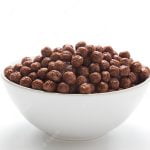
Introduction
Indulging in chocolate is a delightful experience for many, but have you ever wondered if it could be harming your teeth? In this article, we will explore the relationship between chocolate consumption and tooth sensitivity. Understanding the impact of chocolate on dental health can help us make informed choices while savoring our favorite treats.
Understanding Tooth Sensitivity
What Causes Tooth Sensitivity?
Tooth sensitivity is a common dental condition characterized by discomfort or pain when consuming hot, cold, sweet, or acidic foods and beverages. It occurs when the underlying layer of dentin, which contains microscopic tubules leading to the tooth’s nerves, becomes exposed. Various factors can contribute to tooth sensitivity, including enamel erosion, gum recession, and dental cavities.
The Role of Enamel
Enamel, the outer layer of our teeth, acts as a protective shield. It safeguards the dentin and nerves from external stimuli. However, enamel can erode over time due to poor oral hygiene, acidic foods, and sugary treats.
Chocolate and Tooth Sensitivity
The Sweet Temptation: Why We Love Chocolate
Chocolate is a beloved treat enjoyed worldwide for its rich, creamy taste and mood-enhancing properties. Its irresistible allure lies in the presence of compounds like theobromine and phenylethylamine, which stimulate the brain’s pleasure centers.
Chocolate’s Composition and Impact on Teeth
Chocolate contains sugar, which, when combined with oral bacteria, produces acids that attack tooth enamel. Additionally, some chocolates have high acidity levels, further contributing to enamel erosion. Theobromine, although less harmful than caffeine, can also have a mild diuretic effect, leading to dry mouth and reduced saliva production, which are essential for dental health.
The Effect of Sugar on Dental Health
Sugar and Tooth Decay
Frequent sugar consumption fuels the growth of harmful bacteria in the mouth, leading to the formation of plaque. Over time, this plaque produces acids that weaken enamel and cause cavities.
The Connection Between Sugar and Tooth Sensitivity
The erosion of enamel due to sugar consumption can expose the dentin, making teeth more susceptible to sensitivity. When dentin tubules are open, external stimuli can reach the nerves, causing discomfort.
Managing Tooth Sensitivity
Tips for Reducing Sensitivity
- Use a toothpaste specifically designed for sensitive teeth.
- Avoid brushing with excessive force to prevent enamel wear.
- Use a soft-bristled toothbrush to minimize irritation to gums and teeth.
- Limit the intake of acidic and sugary foods.
Dental Products for Sensitive Teeth
Dentists may recommend fluoride treatments or dental sealants to help alleviate sensitivity. Additionally, there are desensitizing toothpaste and mouthwash available over-the-counter for daily use.
Chocolate Alternatives for Dental Health
Healthier Choices
Opting for dark chocolate with higher cocoa content and less sugar can be a wiser choice for dental health. Dark chocolate contains antioxidants that may benefit overall health.
Sugar-Free Chocolate Options
Sugar-free chocolates sweetened with natural sweeteners like stevia can be less harmful to teeth. These options reduce the risk of cavities and enamel erosion associated with sugar consumption.
Maintaining Oral Hygiene
Importance of Regular Brushing and Flossing
Maintaining proper oral hygiene practices, such as brushing at least twice a day and flossing once a day, is crucial for keeping teeth and gums healthy.
Dental Check-ups and Cleanings
Regular dental check-ups and professional cleanings help identify early signs of dental issues and prevent complications.
The Relationship Between Diet and Dental Health
Impact of Diet on Teeth
A well-balanced diet plays a vital role in overall dental health. Nutrient-rich foods contribute to strong teeth and gums.
Balancing Chocolate Indulgence with Oral Health
While it’s challenging to resist the allure of chocolate, moderation and good oral hygiene are key. Enjoy chocolate occasionally and remember to brush and floss afterward.
FAQs About Chocolate and Tooth Sensitivity
1. Can chocolate really hurt my teeth?
Chocolate containing sugar and high acidity can contribute to enamel erosion and tooth sensitivity over time.
2. What types of chocolate are less harmful to teeth?
Dark chocolate with higher cocoa content and sugar-free chocolate options are generally less harmful to teeth.
3. Are there any dental benefits of eating chocolate?
Dark chocolate contains antioxidants that may provide some health benefits, but the sugar content must be considered.
4. How can I enjoy chocolate without damaging my teeth?
Rinse your mouth with water after consuming chocolate to minimize its impact on teeth. Additionally, maintain good oral hygiene practices.
5. Should I avoid chocolate altogether for better oral health?
You don’t need to completely avoid chocolate, but moderation and mindful consumption are essential for maintaining good oral health.
Conclusion
In conclusion, chocolate can contribute to tooth sensitivity and dental issues if consumed excessively and without proper oral care. Being mindful of the type of chocolate consumed, practicing good oral hygiene, and moderating chocolate intake can help strike a balance between dental health and the enjoyment of this sweet delight.










